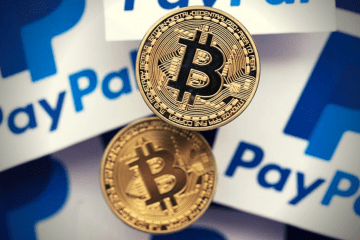Will Bitcoin’s halving push its price higher?
A lot of ink has been spilt over Bitcoin’s halving, with crypto luminaries the world over taking sides on how much it will affect the token’s price. Will it push Bitcoin higher or does its anticipatory nature necessitate much has been priced in?
To Zhao Changpeng, chief executive of Binance Holdings, the world’s largest spot crypto exchange by volume, it’s a no-brainer. “The halving should be very positive for the crypto industry,” said Mr Zhao in an interview from Singapore, citing historical precedent.
The halving, a periodic event that reduces the rewards miners receive, took place on Monday, according to Binance. But it might impact Bitcoin’s price in other ways, says Mr Zhao. Miners may also be more willing to hold on to their Bitcoin for longer in lieu of selling at prices below their break-even costs.
“There’s a psychological effect, which also pushes the price up, but fundamentally I believe supply is limited, but demand is increasing exponentially,” he said.
On how the coronavirus has affected the company, Mr Zhao says the company has seen a large increase in activity both in trading volume and, as a result, in income, over the past few months.
Though the coronavirus outbreak has affected large swathes of the global economy, crypto exchanges have been somewhat insulated. Investors can still trade from home, he said. It’s allowed Binance to continue rolling out products and the company has plans to expand its workforce.
In fact, a number of crypto exchanges have announced similar plans recently. Businesses that don’t require a physical presence – though they may account for a smaller fraction of the economy – might be doing better than before, says Mr Zhao. In addition, quantitative easing has spurred more interest in digital assets. “We just have a lot of work and we need to hire people,” he said. “Right now is a good time to hire.”
On how the outbreak has altered his day-to-day life, Mr Zhao said: “For me, there’s actually very minimal change.” Among the biggest adjustments has been a reduction in conferences and travel. But Mr Zhao, who called himself an introvert, said he could stay at home for a week “and it’s OK”. Binance did, however, have to delay plans for at least one conference thus far.
Stablecoins occupy an interesting middle ground in the crypto universe, with Tether being among the most prominent. But Tether’s lack of transparency could be seen as a potential risk, said Mr Zhao. There are other options, including some of Binance’s stablecoins, though he doesn’t view them as being in competition with one another. “The more stablecoins there are, the better it is for this industry,” he said. “We just want to provide more choices.”
Mr Zhao shares a similar view on China’s recent digital currency efforts. “I don’t view it as a competitor at all – there can only be positive things that happen because it’s an additional choice for people to use,” he said.
Last month, China’s central bank gave the green light for some commercial lenders to run trials of its digital currency, bringing it a step closer to becoming the world’s first major monetary authority to issue its own digital tender.
“As long as there is a currency that offers a very high degree of freedom, that allows people to transact globally, that’s really cheap to use and very safe – we care about those fundamental things,” he said. “If another coin does that, I think it benefits all of our societies and that’s a very positive thing for the industry.”
Source: thenational.ae


